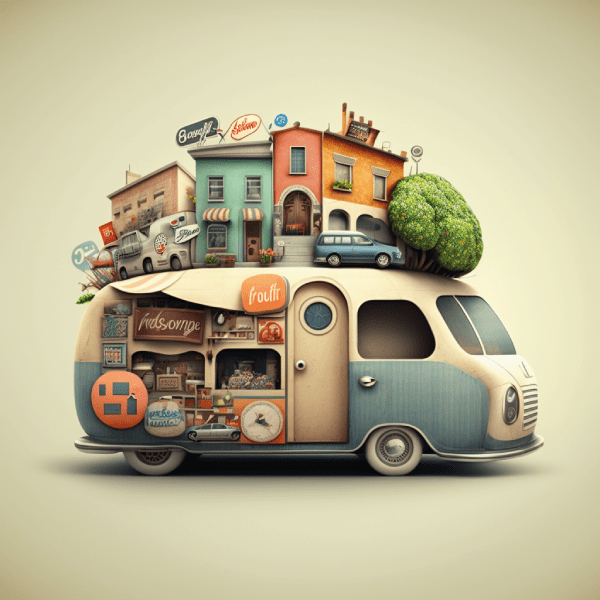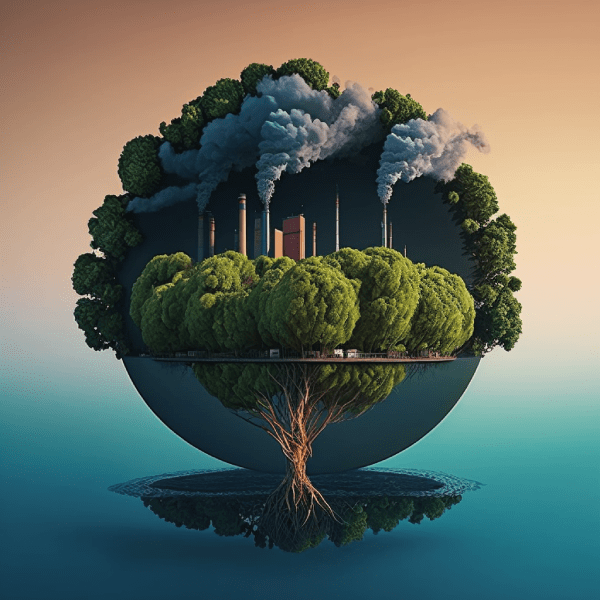Introduction
Let’s face it, the planet doesn’t need saving. Planet Earth has been thriving for billions of years, long before humans came into the picture, and it will continue to thrive long after we’re gone. However, the real challenge lies in preserving humanity and creating an environment that remains livable for us. This is where sustainability comes in—a mindful way of living and managing both personal and business affairs with a focus on long-term impact and responsibility.
Recognizing interconnectedness and responsibility
Contrary to popular belief, sustainability goes beyond simple actions like planting trees, calculating CO2 emissions, or filling out sustainability reports. It’s a holistic approach that recognizes how everything is interconnected, urging us to take proactive steps to reduce harm to the environment while also creating positive social and economic outcomes. At its core, sustainability prioritizes the well-being of people, the planet, and prosperity for all.
But sustainability is more than just a checklist of actions; it’s rooted in awareness. It requires us to deeply acknowledge and respect the sanctity of all life and our inherent connection with nature and the universe. It invites us to cultivate a strong sense of responsibility and stewardship towards the environment and future generations. By embracing this elevated consciousness, both individuals and businesses can adopt sustainable practices that not only benefit the environment but also promote social justice and economic prosperity.
The erosion of community and interdependence
In the not-so-distant past, small communities lived in harmony. These close-knit villages embodied unity and interdependence. When one family built a house, neighbors would lend a hand. When children needed care, another neighbor would step in. People naturally supported and looked after one another because their community’s well-being depended on it.
Sadly, today’s world has seen a decline in this sense of community. Many of us live in houses or apartments without truly knowing our neighbors. The trust and interconnectedness that once defined our communities have gradually faded away. We’ve been taught from an early age not to trust anyone, resulting in a society marked by isolation and disconnection.
As we chase after converting resources into monetary value, we find ourselves dedicating more and more time to work just to afford things that used to be freely available. Our pursuit of material possessions has come at the cost of quality time with our loved ones. It’s an endless cycle that leaves us exhausted and unsatisfied.
We live in a system that feels like slavery, based entirely on competition and rivalry. It seems to benefit only a minority of the wealthy while leaving the majority behind. This situation causes social, spiritual, and environmental distress. Surprisingly, many of us are not even aware of it. We were born into this system, knowing no other way, and we believe that things cannot be different.
Shifting consciousness and reclaiming power
However, there is a way out—a path that isn’t about anger or resistance against the perceived “evil” system, nor is it about escaping to the solitude of the woods. The true way out lies in a profound shift in consciousness and reclaiming the power that we inadvertently surrendered to the confines of the “system.” This transformation opens the door to abundance and prosperity for everyone.
By embracing sustainability with substance, we embark on a journey of self-discovery and interconnectedness. It begins with reconnecting with our communities, our neighbors, and extending a hand of trust and support. It involves recognizing that our well-being is intrinsically tied to the well-being of others and the planet we call home. Through sustainable practices and thoughtful decision-making, we can create a world where environmental preservation, social justice, and economic prosperity go hand in hand.
Share this post if you believe in the transformative power of evolving human consciousness for a sustainable future!
If you’ve just read this post and resonate with the idea that the key to sustainability lies not in regulations or isolated activities, but in the evolution of humanity’s consciousness, the end of rivalry, competition, and confrontation, then I invite you to share this post with others.
Sustainability goes beyond superficial actions and checklists. It requires a profound shift in awareness—a recognition of the interconnectedness of all life and our responsibility to create a world that benefits both people and the planet. It calls us to reclaim our power and foster a sense of unity, trust, and support among communities.
In today’s world, the erosion of community and interdependence has led to isolation and disconnection. We’ve become caught in a cycle of chasing material possessions at the expense of our well-being and the well-being of others. It’s time to break free from this system that promotes competition and leaves many behind.
Embracing sustainability with substance means embarking on a journey of self-discovery, interconnectedness, and mindful decision-making. It means recognizing that our actions have consequences and that we hold the power to shape a future where environmental preservation, social justice, and economic prosperity coexist.
By sharing this post, you amplify the message of evolving consciousness and invite others to join this transformative journey. Together, we can create a world where sustainability is not just an ideal, but a way of life—a world that honors our shared humanity and nurtures the planet we cherish.
Share this post and be a catalyst for change. Let’s build a brighter tomorrow by embracing sustainability with substance.



